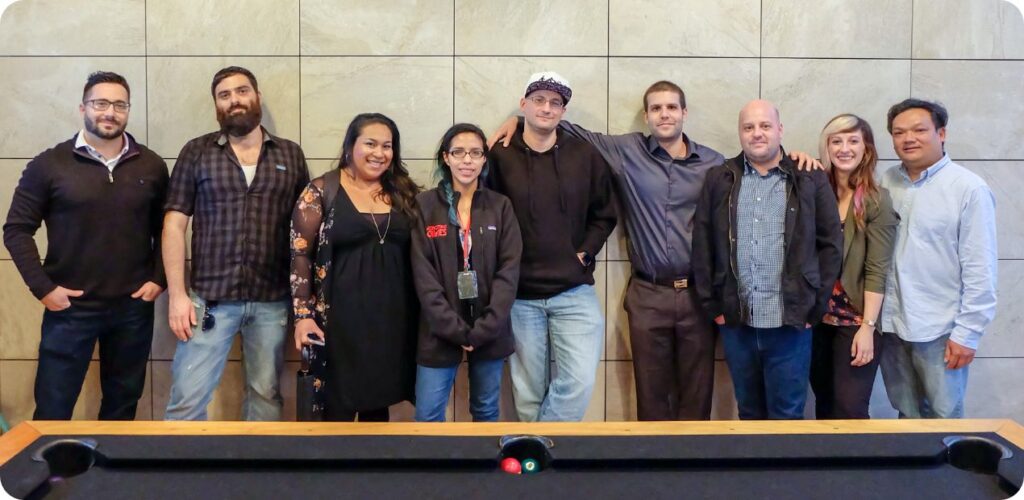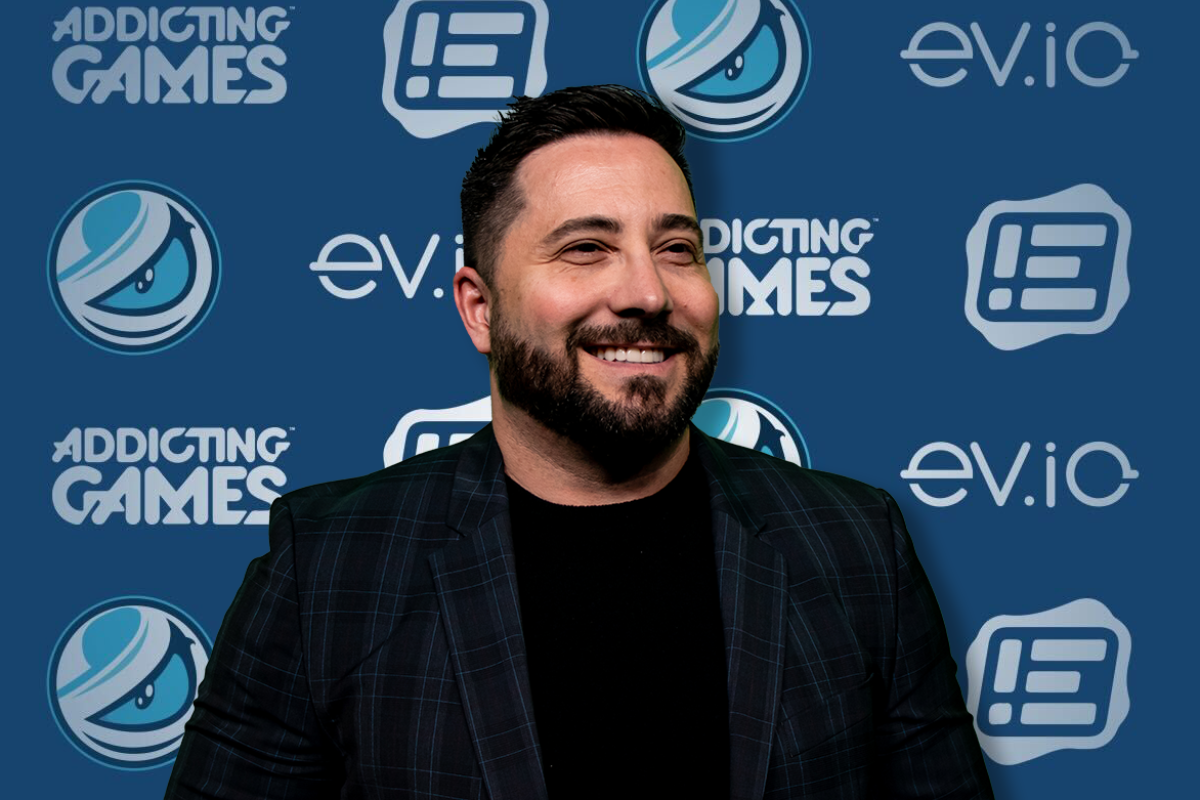Edmonton is a city of opportunity, innovation and progression. Its entrepreneurial spirit is contagious, and NAIT students are often some of the first to catch the bug. For Bill Karamouzis, this Edmonton spirit led to the recent commemoration of his 20th anniversary as an entrepreneur. He’s the founder and CEO of Addicting Games — and a NAIT Bachelor of Technology alumnus.
“I am probably NAIT’s officially longest running student. My transcripts started in 1999 or 1998,” said Karamouzis. While taking night classes at NAIT and working for Capital Health, Karamouzis was earning banner ad income from his self-built website, which was a collection of popular images and videos.
“The Internet was starting to take off then,” he said. “NAIT was really relevant, the courses were good, but it was really a time to be building online, and that window wasn’t going to stay open forever.”
Karamouzis decided to drop out of school and pursue entrepreneurship. He invested in underutilized domain names attracting traffic, like FlashPlayer.com, WordGames.com and of course, AddictingGames.com.
He ended up returning to school after being accepted into an MBA program through Queen’s University, then returned to NAIT in 2017 for the Bachelor of Technology program.
“I think when you go back to school as a working adult, you kind of appreciate it more because there’s no one who forced you to do it. You’re there because you want to and you’re paying your own money, and if you don’t want to do it, there’s no one to complain to. When I first went to NAIT, there was the parent component, there was the ‘I need to get a good job’ component. When you’re an adult, some of that is already solved, it’s really on you to be successful … It was challenging, but it was rewarding too.”
Since he was taking part-time classes at NAIT while working, Karamouzis experienced the challenges of school during the peak of COVID. Working in the tech industry, overcoming challenges happens regularly.
“Innovation in tech can come from any angle … in our industry, we have innovation in content. The type of content people like to consume changes, the platforms they consume content on changes, so we went and started off on desktop, now it’s mobile, now it’s been fractured between console, mobile, a lot of people just take their games wherever they go,” he explained.
“The platforms have changed, the technology to deliver the content has changed, the games and the game tastes have changed, so really you’re in this constant state of innovation and trying to evolve.”
Millennials who grew up with the internet faced tech revolutions as they navigated online domains and the start of social media throughout their careers; Karamouzis thinks that AI could be Gen Z’s technology revolution.
“For us as developers, we started with just Internet,” he said. “But going forward, I think tools like AI and being able to leverage them is going to be the next frontier. AI is an enabler. So, what can you take and then use AI to amplify is going to be the next big opportunity for five to ten years, where people are using it in ways that we don’t even know yet.”

Blockchain technology is another up and coming technology challenge younger generations may have to face in their careers. Karamouzis and his team have utilized this by introducing virtual NFT collectibles through their online multiplayer shooter game, Ev.io.
“It might look different than what we have today, but there will be cases where NFTs make a lot of sense and blockchain makes a lot of sense. But right now, it’s all being discovered almost in real time, and we see all those failures and we see some successes. To someone who’s not in it, it does look chaotic—because it is chaotic. It is literally the Wild West out there.”
AI and NFTs aside, one thing Addicting Games has always been sure to pivot towards is accessibility.
“We want everyone to be able to play, and that’s been our calling card and we stuck with that since [2002]. So, we see competitors making really amazing, beautiful looking games and we think that is amazing and we look at that as a huge success. But for us, we will always say, can this work on a Chromebook? Does it work equally well across the whole world? Whether you’re in Latin America with poor Internet connection or somewhere in rural Alberta and you have poor connection, can this actually work equally well for everyone?”
Karamouzis also values accessibility in educational gaming. During the pandemic, Karamouzis and his team hired 20 teachers to help teach kids math through his MathGames.com domain, which blew up after schools shut down. The domain has helped in other ways, too.
“My old high school actually, M.E. LaZerte, [was] using Math Games and asking how they can use it for some of the students that were still struggling with math entering [grade ten]. So, you know, algebra is challenging for everyone. I don’t think that ever stops being challenging at any grade.”
Although Karamouzis works in both California and Edmonton, he shares the same values and attitudes of his hometown—low ego and team oriented, with an empathetic instinct that helps him understand the needs of others and dedicate his brand to accessibility in gaming.
“There isn’t such a big divide between people. We have a ton of immigrants in the city, we have a diverse culture in the city, I think it’s really welcoming … we’re just used to this mixture of opinions and people,” he said. “I tell people about Heritage Days. I grew up thinking it was everywhere, but it’s a very Edmonton thing and it feels like a reflection of the personality of the city.”
Karamouzis has captured Edmonton’s entrepreneurial spirit in a way that NAIT students should keep in mind when starting their careers. Technology will come and go, but innovation starts with accessibility and meeting the needs of others.






